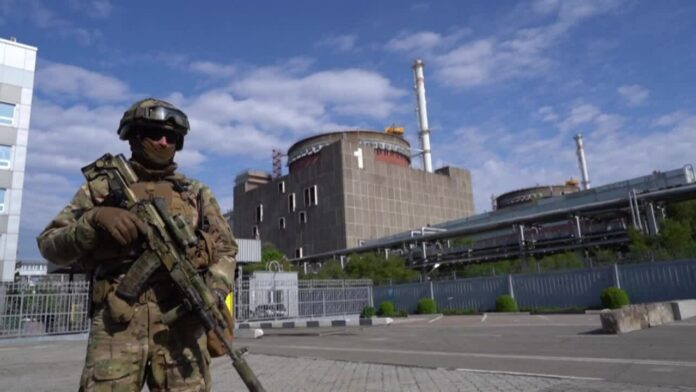The owner of the Ukrainian nuclear power station in Zaporizhzhia claims that Russian military strikes caused “severe damage” to several areas of the facility, forcing the shutdown of one reactor.
Enerhoatom cautioned that there was still a possibility of radioactive leaks.
Despite the EU’s condemnation of Russia’s actions at the plant, Moscow claimed that Ukraine was responsible for the attack.
The largest plant in Europe, Zaporizhzhia, was taken over by Russia in March, but its Ukrainian workers were retained.
Ukraine accused Russian forces of using “terror tactics” by launching rockets from the location at civilian neighbourhoods.
According to a Telegram message from Enerhoatom, the attacks on Friday “created a severe risk for the safe functioning of the plant,” adding that one of the reactors had to shut down due to a damaged power cable.
The EU, meanwhile, has criticised Moscow over the most recent shelling, with Josep Borrell, the bloc’s top diplomat, declaring that the EU “condemns Russia’s military activity” near the plant.
He demanded that the UN’s nuclear watchdog, the IAEA, be given access to the plant and said that the incident was a significant and reckless violation of nuclear safety regulations.
In close proximity to Ukrainian-held territory, Russian forces control the factory and the surrounding area. It houses radioactive waste and has six pressurised water reactors.
According to residents of adjacent Nikopol, which is across the river and still governed by Ukraine, Russian military equipment was being moved into the property and rockets were being fired from the region around the facility.
Any bombing of this landmark, according to Ukraine’s president, Volodymyr Zelensky, is a heinous crime and an act of terrorism.
The factory is located in Enerhodar, a city in southeast Ukraine on the Dnieper River’s left bank.
According to the UK Defense Ministry, Russia is utilising the region to launch operations, benefiting from the nuclear power plant’s “protected status” to lessen the likelihood of midnight attacks by Ukrainian forces.






















